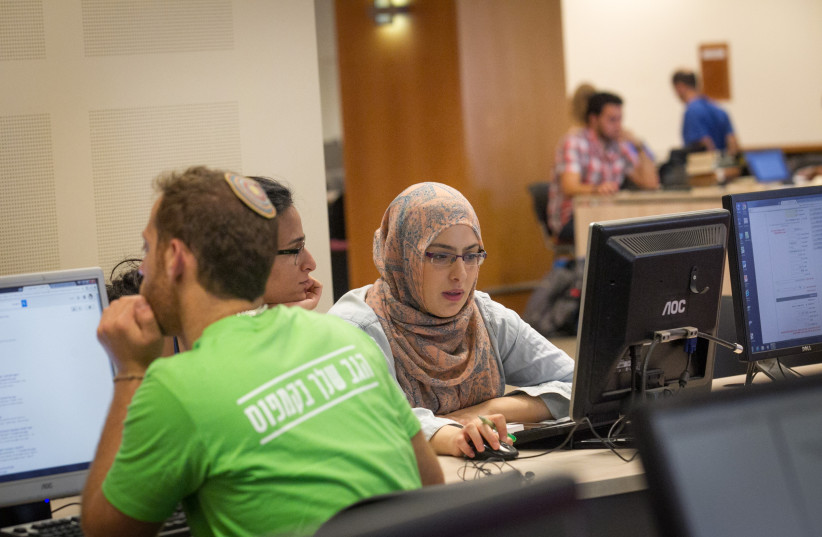Arab inactivity in Israel is rising due to Israel’s failings – State Comptroller
Israel doesn’t do enough to help its Arab youth become productive after graduating high school, according to a state comptroller report published on Tuesday.
The rate of inactive youth between the ages among Israel’s Arab population is the third highest among OECD countries after Colombia and Turkey. Inactive youth are defined as people who are not pursuing higher education or professional training and are not employed or seeking employment.
This rate was found to be drastically higher than Jewish Israeli youth because Jewish Israelis mostly enter the military or national service or yeshiva upon leaving school.
The state comptroller found that over the last six years, the number of unproductive Arab youth has continued to rise gradually. These rates also rose among Jews during COVID-19, but will Jewish youth went back to the same pre-COVID rates in 2021, Arab rates continued to rise. At the same time, crime rates among Arab youth have also risen.
According to the report, the government’s attempts to solve this issue were ineffective because they were based on wrong information. The country formed a plan without sufficient data and ended up giving the Bedouin sector the least attention than the other Arab sectors while they are the sector that needs the most attention.
 Arab and jewish students seen at the campus of ”Mount Scopus” at Hebrew University on the first day of the new academic year. October 18, 2015. (credit: MIRIAM ALSTER/FLASH90)
Arab and jewish students seen at the campus of ”Mount Scopus” at Hebrew University on the first day of the new academic year. October 18, 2015. (credit: MIRIAM ALSTER/FLASH90)More efforts to help Bedouin youth to achieve a bagrut (high school graduation) certificate, higher education, national or military service or professional training would be greatly beneficial but this is currently not happening.
Preparing Arab youth for life after school is a major issue in general, the report also found. Hebrew teaching, for instance, is greatly lacking as the teachers who teach Hebrew are generally not qualified.
In fact, while conducting outreach as part of the report, Arab youth told the state comptroller that “We can figure out the roots of words, but we cannot speak two sentences in Hebrew” and “there’s no connection between a student who completes five Bagrut units of Hebrew and an ability to communicate in the language.”
A lack of proficiency in Hebrew was found to be a major factor for many Arab youths being rejected from Israeli universities, leading to more inactive youth having been rejected from universities than those who never intended on attending. In this respect, the state comptroller praised a Haifa University pilot to accept Arab students that required them to take a Hebrew course during their studies instead of requiring an entry-level proficiency.
Another issue Arab youth face in their education is no encouragement to pursue a future. While Jewish students are guided through the process of joining the military or national service, Arabs are barely given any career guidance and are not presented with options. While there is an option to do a Gap Year program and receive career help in the year after school, the program only accepts a small number of participants and charges a high fee per person.
How can the government help?
In order to encourage Arab youth to have a productive future after school, the state comptroller told all relevant parts of the government to formulate a proper plan based on accurate data. The plan should be adjusted to fit every Arab town and sector, and progress should be closely monitored.
Equally as important, the country should ensure that schools are better preparing their Arab students for life after high school by ensuring proper Hebrew teaching and career counseling.
Finally, the state comptroller recommended creating a designated budget for bridging the gap between Bedouin youth and the other Arab sectors.
Across all Arab sectors, however, the government is trying to fight rising crime rates. In order to do so, the government wants the Education Ministry to predict and target students who are at high risk of dropping out of school in order to deter them from a life of crime. While the ministry does not have a system to do this, the report notes that it should create one because the same logic could predict kids at risk of inactivity.





Comments are closed.